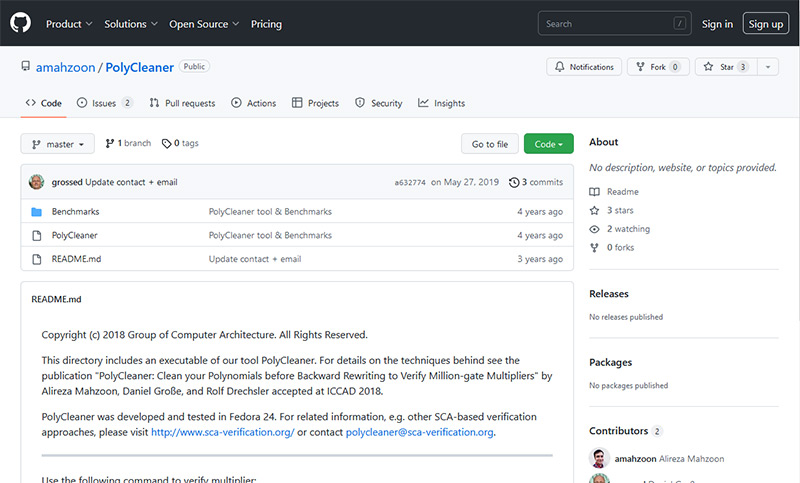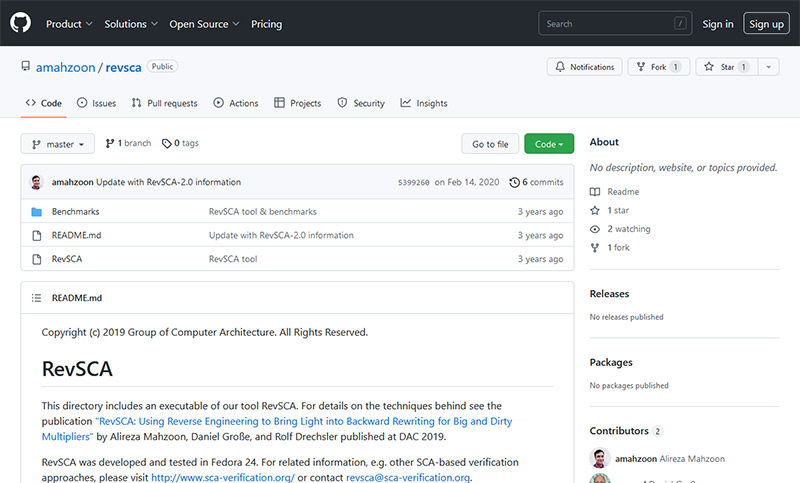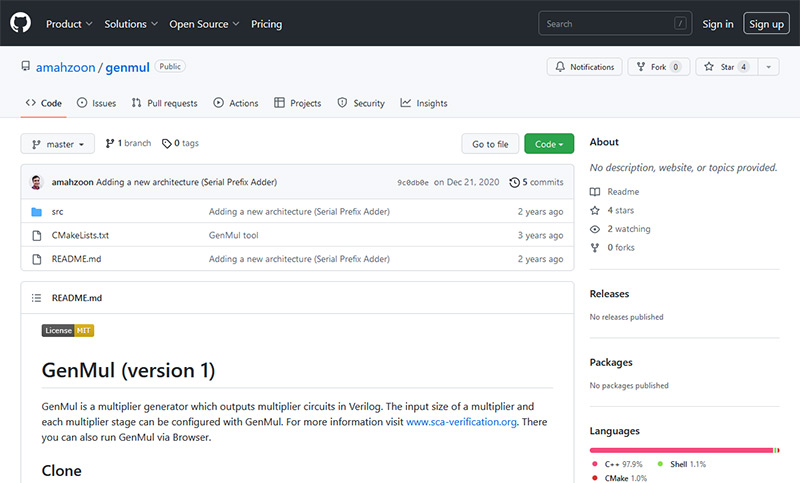 The paper introduces a verification method based on Symbolic Computer Algebra (SCA) and presents a new theory for the origin of vanishing monomials,
redundant monomials which lead to an monomial explosion for non-trivial multipliers. The implemented SCA-verifier PolyCleaner is able to prove the
correctness for non-trivial million-gate multipliers where the other state-of-the-art methods failed.
The paper introduces a verification method based on Symbolic Computer Algebra (SCA) and presents a new theory for the origin of vanishing monomials,
redundant monomials which lead to an monomial explosion for non-trivial multipliers. The implemented SCA-verifier PolyCleaner is able to prove the
correctness for non-trivial million-gate multipliers where the other state-of-the-art methods failed.
For PolyCleaner we received the Best Paper Award at the International Conference on Computer Aided Design (ICCAD) 2018.
How to get PolyCleaner
 RevSCA proposes a fast and robust SCA-based verification method integrating dedicated reverse engineering to verify big and dirty multipliers.
RevSCA proposes a fast and robust SCA-based verification method integrating dedicated reverse engineering to verify big and dirty multipliers.
Recently, we have improved RevSCA to also support signed multipliers and we have also optimized the implementation. This new version is called RevSCA-2.0.
How to get RevSCA-2.0DyPoSub takes advantage of dynamic substitution ordering in combination with local vanishing removal and reverse engineering to verify optimitzed and industrial multipliers.
How to get DyPoSub
 We present the multiplier generator GenMul, which outputs multiplier circuits in Verilog.
The input size of a multiplier and each multiplier stage can be configured with GenMul.
In addition, GenMul is open source under MIT-license to ease for adding new architectures.
Overall, this allows to challenge formal methods as shown by experiments which compare recent verification approaches.
We present the multiplier generator GenMul, which outputs multiplier circuits in Verilog.
The input size of a multiplier and each multiplier stage can be configured with GenMul.
In addition, GenMul is open source under MIT-license to ease for adding new architectures.
Overall, this allows to challenge formal methods as shown by experiments which compare recent verification approaches.